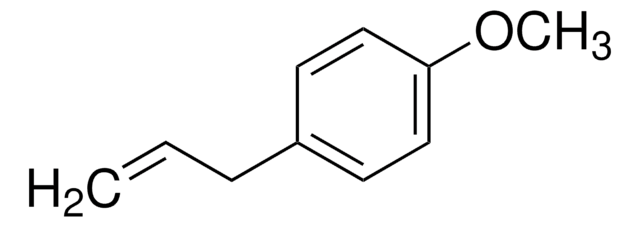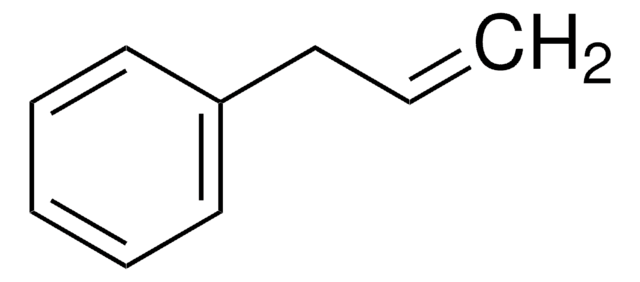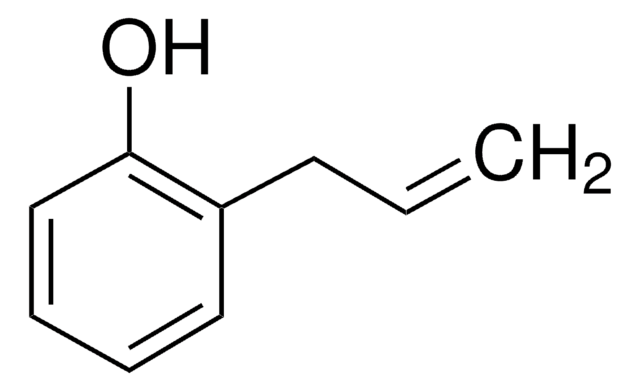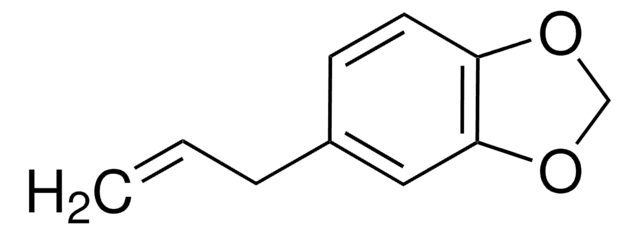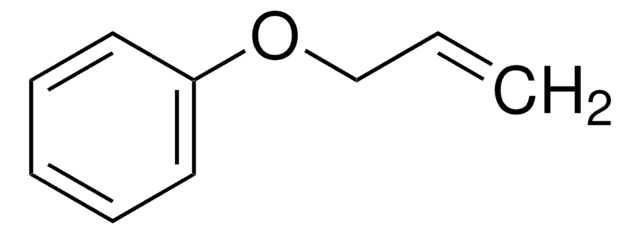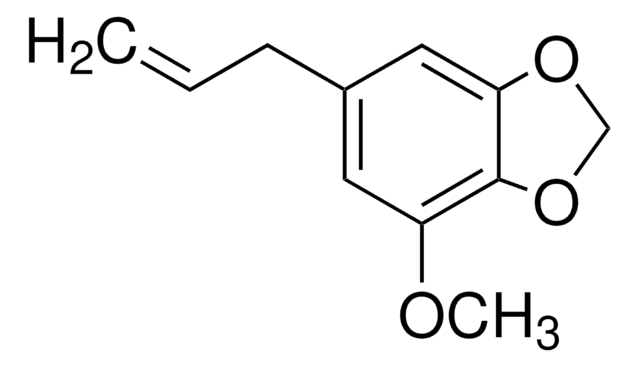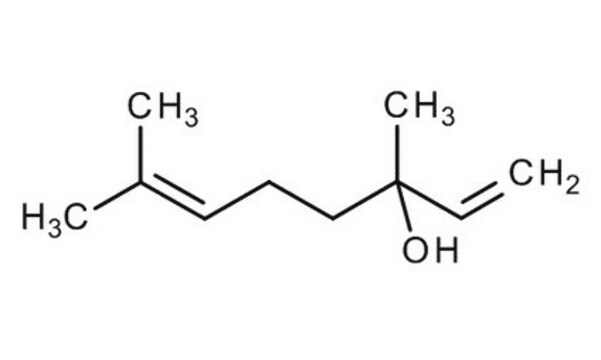284424
4-Allyl-1,2-dimethoxybenzene
99%
Synonym(s):
Eugenol methyl ether, 4-Allyl-1,2-dimethoxybenzene, Eugenyl methyl ether
About This Item
Recommended Products
Quality Level
Assay
99%
form
liquid
refractive index
n20/D 1.534 (lit.)
bp
254-255 °C (lit.)
mp
−4 °C (lit.)
density
1.036 g/mL at 25 °C (lit.)
functional group
allyl
SMILES string
COc1ccc(CC=C)cc1OC
InChI
1S/C11H14O2/c1-4-5-9-6-7-10(12-2)11(8-9)13-3/h4,6-8H,1,5H2,2-3H3
InChI key
ZYEMGPIYFIJGTP-UHFFFAOYSA-N
Looking for similar products? Visit Product Comparison Guide
General description
Signal Word
Warning
Hazard Statements
Precautionary Statements
Hazard Classifications
Acute Tox. 4 Oral - Aquatic Chronic 2 - Carc. 2 - Muta. 2
Storage Class Code
10 - Combustible liquids
WGK
WGK 1
Flash Point(F)
230.0 °F - closed cup
Flash Point(C)
110 °C - closed cup
Personal Protective Equipment
Choose from one of the most recent versions:
Already Own This Product?
Find documentation for the products that you have recently purchased in the Document Library.
Customers Also Viewed
Our team of scientists has experience in all areas of research including Life Science, Material Science, Chemical Synthesis, Chromatography, Analytical and many others.
Contact Technical Service